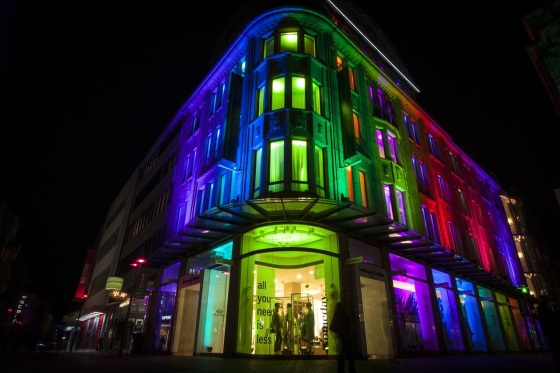Could LED Light Bulbs Be Good For Your Health?
The lighting industry has been rocked with recent research from LightingEurope revealing that LED bulbs could present an array of health benefits. In fact, experts have even started to recommend that LED lighting be used in hospitals, health centres, schools and offices. The concept has been dubbe

The lighting industry has been rocked with recent research from LightingEurope revealing that LED bulbs could present an array of health benefits. In fact, experts have even started to recommend that LED lighting be used in hospitals, health centres, schools and offices. The concept has been dubbed ‘Human Centric Lighting’ (HCL) and refers to the biological and visual impact lighting can have on the health and wellbeing of humans.
The research has shown that despite popular conception, lighting is not just about visual aesthetics and practicality. Instead, the concept of HLC has well and truly emerged onto the global stage, creating a buzz with lighting manufacturers and health experts alike.
Steven Ellwood, Managing Director of leading LED lighting supplier BLT Direct, says “These are incredibly exciting new developments and it’s amazing to think that something as simple as lighting could have such an impact on a person’s health. Thanks to their efficiency, versatility and cost effective qualities, LED light bulbs have always been a best seller. But these new discoveries could send LED sales through the roof, as hospitals and health care centres search for new ways to treat and care for their patients.”
LEDs are by no means new - used for decades in products such as digital clocks, traffic signals, fairy lights and flashlights, they’re practically a mainstay in the world of electronics. However it is only recently that the two-lead semiconductor light source has started to make an appearance in domestic environments. Renowned for their ultra-efficient energy rating and extended working life, LEDs are a great eco-friendly lighting option. Not only do they reduce CO2 emissions but the intelligent lights also slash power bills and minimise replacement costs. These are all fantastic perks, however in the past few months, a revolutionary new benefit has come to light.
One of the major identified benefits of LED lighting is its lack of interference with sleep patterns. Using specially engineered colour and brightness tuning, LED bulbs will not interfere with the sleep inducing hormone of melatonin. This makes the bulbs ideal for hospitals and health care centres where adequate illumination is often required around the clock.
LED has also been recognised for its mood enhancing qualities, with studies indicating that HCL has the power to help people suffering from mental health diseases such as anxiety and depression. Once again, this positions LED as a hugely beneficial lighting solution for hospitals and care centres. Corresponding with this research is the use of LEDs to treat cases of seasonal affective disorder (SAD). As well as being used in light therapy sessions, the bulbs are also recommended for use by residents of far north countries such as Iceland.
When used in offices and school, LED lights have been proven to increase efficiency and enhance concentration. HCL has demonstrated a cooling effect on the eyes, meaning employees and students enjoy less irritation and optimised simulation of natural light.
With fantastic benefits such as these on offer, sales of LED light bulbs are set to skyrocket. BLT Direct is at the forefront of the trend, retailing a huge selection of LED lighting solutions for a range of commercial, industrial, health and domestic environments.
